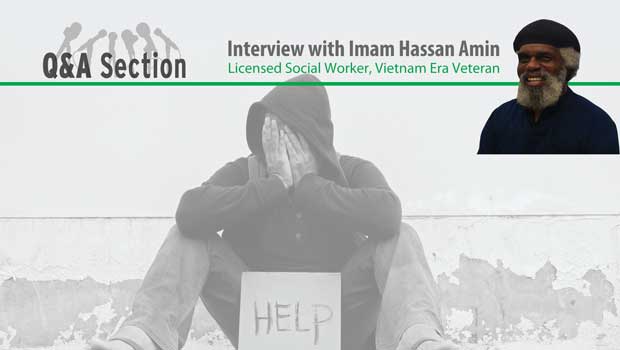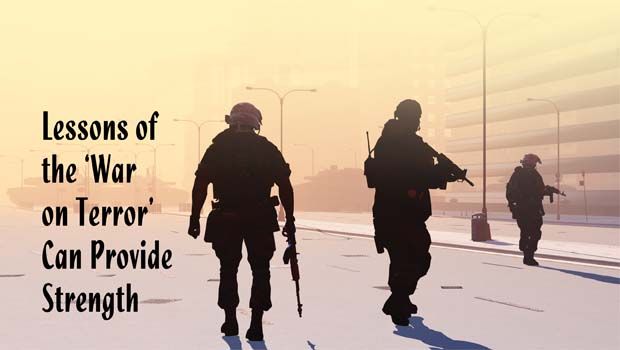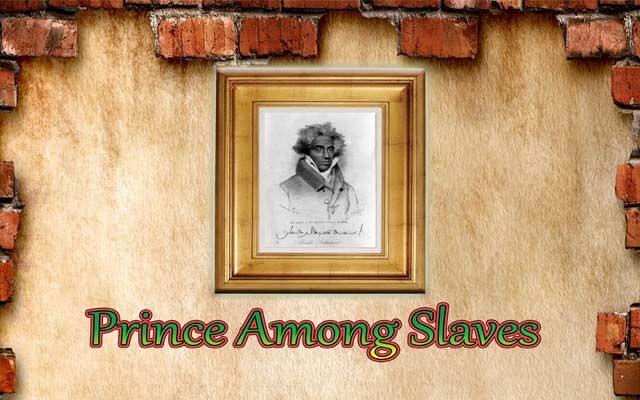(Some editing for clarity and length)
What organization do you work with?
My organization is the Muslim Social Services Agency. Also, I am an imam at Johns Hopkins University and a chaplain at Johns Hopkins Hospital, and a board member of Masjid Ihsan in Baltimore city.
What kind of help does MSSA provide to the community?
Besides working with refugees, we at MSSA do marriage counseling, feed the needy, serve our seniors by providing personal items, and work with victims of domestic violence, helping to transition victims to a shelter or other home. We also provide fresh vegetables or canned goods to the people in the community who don’t have a lot of money. We are trying to set up a pantry at Masjid Ihsan to serve the community as well. We look for problems and we try to resolve them. During the Freddy Gray riots two years ago, we along with some ministers, encouraged people not to riot. The next day we organized a cleanup and cleaned up Baltimore City following the riots.
How long have you been in this position or with this organization?
I’ve been a chaplain at Johns Hopkins Hospital for 14-15 years, and imam at the university since 2011. I have been an Executive Director and founder of MSSA since 2003. We are primarily a local social services agency that connects people to resources and services to improve their quality of life. Clothing, housing, support for those who have been evicted, those kinds of things.
How do you help Syrian refugees in your community?
We have a responsibility to help humanity. When Syrians started coming to Baltimore city, I saw on TV a spokesperson from an international organization talking about Syrians coming here and he mentioned that he was going to connect the new refugees to jobs, schools, and church. So I said to myself, church — wait a minute, that will not be compatible with the Syrians’ backgrounds and their way of life since most of them are Muslim. I met with the organization to help with their resettlement. I met with them to assess their needs. On Oct. 12, 2015 we arranged a meeting and partnered with them to help Syrians resettle in the Baltimore area. They were very receptive to having a meeting because they look for community partners.
How many new families have arrived over the past year that your organization or community is helping?
So far we’ve been helping about thirty-five Syrian families; about 200 people. That is about 90-95 percent of the known Syrian refugees who come to our area. We are really up on those coming to the area. We have only one case manager and so we need to get more grants to hire more case managers to help because the need is so great. We want to make them independent as quickly as possible. That way we can help another family and so on.
Are they arriving from Syria itself or from another transit country?
Some of them come in from Jordan through an organization. One of the brothers who speaks fluently translates for that organization. A case manager works with them from MSSA. We got a grant from Mercy USA so that we could hire a fulltime case manager.
What kinds of social challenges are the newly arrived Syrian refugees having?
One of them is adjusting to the society in terms of the language. English is overwhelming to many of them. Many of them attend ESL classes in churches and other places. In one case the instructor told the women to take their trash bags off their heads, take their terrorist clothes off, and then gave them a Bible in Arabic. What we did, since my case manager speaks Arabic and I know a little, we started an ESL class for them. A college professor, my case manager, and I started that in October of last year. We go to their homes, pick them up, teach them, and then take them back home. We alternate between men on one day and women on another so there is someone home with the kids. We try to meet the needs of the students, and we got a grant from ABLE organization to help with the ESL class for materials.
Some of them have PTSD, having come from a war zone and whatever trauma they have gone through. Some of them have an almost hoarding behavior because of what they are going through. So when they get something they hold on to it. Some of them don’t want their family members to go far from them for too long a period, fearing they will never see them again. One man was tortured by soldiers so he understandably has a trust issue. One child was forced by soldiers to walk past the dead bodies of fellow students.
The children also have a challenge adjusting to school; they only know Arabic, may be harassed by other students for their language or dress, and have difficulty with understanding the homework. Some of the parents will bring their children’s homework to ESL class so that they can get help with the assignment.
Are the schools helping?
One of the schools has a multicultural population and they try to help them adjust to the school setting.
What specific kinds of work challenges do the refugees have?
Because of their limited English, the men are having a hard time finding jobs. They have to take menial jobs. The pay is around $9-$10. They often don’t get a full week of work because the company doesn’t have enough hours for them. Many of them get help from DSS (Dept. of Social Services) and they receive some supplement for food. They may receive a letter to get recertified and they don’t know what it says and then get cut off because they didn’t respond on time or at all. Our case manager goes and helps them fill out applications. He will attend their appointments and help to explain what the situation is. The agency doesn’t hesitate to put the people back on if their case is presented.
How much help are the local social service agencies?
They help a great deal. The organization they come through is IRC (International Rescue Committee) and they connect them directly to DSS to get food stamps, health insurance, and help with other needs. They only stay with IRC for three to eight months. After that they are on their own. MSSA comes in and helps them to continue to learn and get any additional help they need. We work with small, everyday skills like dealing with the mail, writing checks, going to the post office, besides helping with their English proficiency, appointments, and applications
What types of educational backgrounds do these new refugees have generally?
Some of the women have at least high school completed. The men may have an 8th or 9th grade educational level. They might have left school to find work to support their families. One of my advanced English students had an engineering degree. He has adjusted a little bit better and has a car. His goal was to go to college and open up a business. Many have skills like baking or jewelry making and had small businesses back in Syria. But many of them are trying to survive and can’t get into the mode of thinking about what else they want to do. They want to make sure that their families don’t end up on the street. They want one good job to help them stand on their own feet. That to me means they have some type of goal and don’t want to depend on others.
That’s where Aleppo Kitchen comes in. We teamed up to get the Aleppo Kitchen to help with supplemental support. They have expanded to the point where families have gotten their own business cards and started their own catering businesses outside of Aleppo Kitchen. We are trying to find a place where they can have a commercial kitchen and have workforce development and learn different skills.
What kind of help can the local Muslim community give to their Syrian brothers and sisters?
First, is to make dua for them and the organizations that are helping them. They can also donate to organizations like MSSA and put on their donation “for Syria” so that we can help them better.
Ramadan is around the corner, so please donate to help the refugees and get the barakah for that multiplied. If people donate enough money, we can get a facility so that we can train people to get high skilled jobs. Instead of giving people fish, give them a fishing pole so they can fish for themselves, as the old adage goes.






